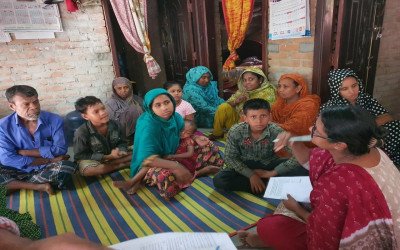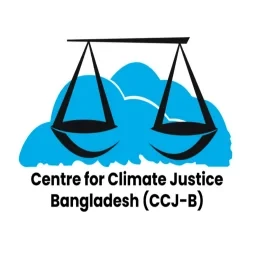
The Centre for Climate Justice–Bangladesh (CCJ-B), in partnership with An Organization for Socio-Economic Development (AOSED), conducted a comprehensive study under the Multi Actor Partnerships on Climate and Disaster Risk Finance and Insurance (MAP CDRFI) project to assess the landscape of risk finance and insurance mechanisms in Bangladesh from April to June 2024. This study builds on global initiatives, particularly the Climate and Disaster Risk Finance and Insurance (CDRFI) framework launched by the InsuResilience Global Partnership in 2017 at COP23. The framework is guided by five pro-poor principles emphasizing gender responsiveness, human rights, transparency, accountability, and stakeholder collaboration—central to the Multi Actor Partnership (MAP) model. Recognizing the importance of such inclusive approaches, the MAP CDRFI project aims to promote and localize these principles in climate risk financing in the country’s coastal regions. As part of this initiative, CCJ-B was engaged to conduct a scoping study in the southwest coastal zone to understand current practices, identify challenges and propose a roadmap for an inclusive, effective and rights-based CDRFI mechanism. The goal was to support the development of a locally grounded, pro-poor, gender-responsive and human rights-oriented model for risk finance and insurance. Data collection included household surveys to capture community perspectives, Key Informant Interviews (KIIs) with relevant stakeholders and Focus Group Discussions (FGDs) at community level. The proposed roadmap offers key recommendations for institutionalizing a multi-actor platform that ensures accountability, capacity building and access to risk finance for the most affected populations. The study is expected to contribute meaningfully to ongoing efforts to strengthen climate resilience and financial protection for vulnerable communities in Bangladesh’s coastal regions.
